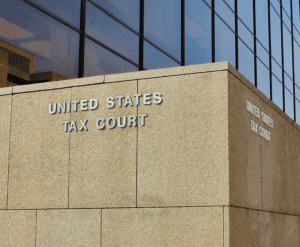
Is my Judgment or Settlement Taxable?
Winning or settling a lawsuit that results in a large cash payout may require the winning party to pay taxes on the judgment or settlement proceeds. However, the taxable nature of these types of payments are not simple and involve a series of questions to address. Specifically, a determination by the IRS or state taxing authority on whether settlement funds or judgment proceeds are taxable will be based on (1) the litigated claim’s nature and (2) the type of damages received.
 When monetary damages are won or collected due to a personal physical injury or sickness, those proceeds will not included by the IRS as “income.” However, it is essential to ensure that the settlement or court award identifies the specific amount being apportioned to these physical injury damages because personal injury or sickness may only be part of a collected judgment or settlement. Furthermore, for such damages to be deemed non-taxable, the payment must be for a physical injury; emotional distress may not qualify for this exclusion. Additionally, if any part of the collected monetary award received is for punitive damages, that portion will not be excluded from income. Further, if any portion of the settlement or judgment proceeds are paid from employee or employer health or accident insurance, the exclusion from income will be limited. Importantly, a settlement agreement must specify the specific purpose of the settlement funds if the damages are settled through a settlement agreement because — as noted above — certain damages are taxable and others are not. If general language is used in a settlement agreement, the entire settlement might be deemed taxable by the IRS or state taxing agency.
When monetary damages are won or collected due to a personal physical injury or sickness, those proceeds will not included by the IRS as “income.” However, it is essential to ensure that the settlement or court award identifies the specific amount being apportioned to these physical injury damages because personal injury or sickness may only be part of a collected judgment or settlement. Furthermore, for such damages to be deemed non-taxable, the payment must be for a physical injury; emotional distress may not qualify for this exclusion. Additionally, if any part of the collected monetary award received is for punitive damages, that portion will not be excluded from income. Further, if any portion of the settlement or judgment proceeds are paid from employee or employer health or accident insurance, the exclusion from income will be limited. Importantly, a settlement agreement must specify the specific purpose of the settlement funds if the damages are settled through a settlement agreement because — as noted above — certain damages are taxable and others are not. If general language is used in a settlement agreement, the entire settlement might be deemed taxable by the IRS or state taxing agency.
Damages related to employment lawsuits can, in certain circumstances, be deductible as well. Employment lawsuits raised under the American Disabilities Act, the Equal Protection Act, and other federal statutes may not be taxable. These federal statutes will allow for the exclusion from income when the protected status of the statute is breached. When the damages result from a breach of contract and provide for back pay and other compensatory damages, the exemption from tax will not be applicable. In these types of lawsuits, the suit itself must cite the proper statutes required to provide for an exemption under the proper statute.
A lawsuit settlement that is paid for damages to property is generally excluded from income if the payment amount does not exceed the current value of the replaced value. If the settlement amount is greater than the property’s value, then the taxpayer will be required to pay taxes on the portion of the settlement that exceeds the value. If a settlement occurs in a business situation, in most cases, the proceeds will be taxable. If the proceeds are replacing the income that could have been received by the taxpayer, the proceeds will be taxable.
For all of these reasons, any legal settlement agreement or court judgment must break down the damages that are being awarded. If a lump sum figure is used and does not delineate the apportionment of the funds, such a mistake could cause the entire amount of the settlement or judgment to be taxable. Before completing a settlement, it is imperative to have the documents reviewed by a qualified attorney for tax purposes.
As head of the firm’s Tax Practice, Robb Longman currently serves as the Counsel Director of the Tax Section of the American Bar Association and has been the Chair of Maryland State Bar Association’s Tax Section. Mr. Longman regularly works with all types of tax clients at our firm’s Maryland and DC offices to devise strategies to help them minimize their IRS, Maryland, and DC tax penalties and, if possible, avoid tax disputes. Robb Longman and the tax attorneys at Longman & Van Grack works tirelessly with each of their tax clients regarding taxation of settlements, taxation of judgment, IRS tax problems, and tax planning throughout Maryland, DC, Rockville, and Bethesda. Robb Longman works directly with each of his tax clients to lessen their tax burdens and maximize the tax benefits . If you would like to meet with Mr. Longman regarding the taxable nature of a settlement or judgment, call 301-291-5027 to schedule an appointment or speak with Mr. Longman.

Thank you